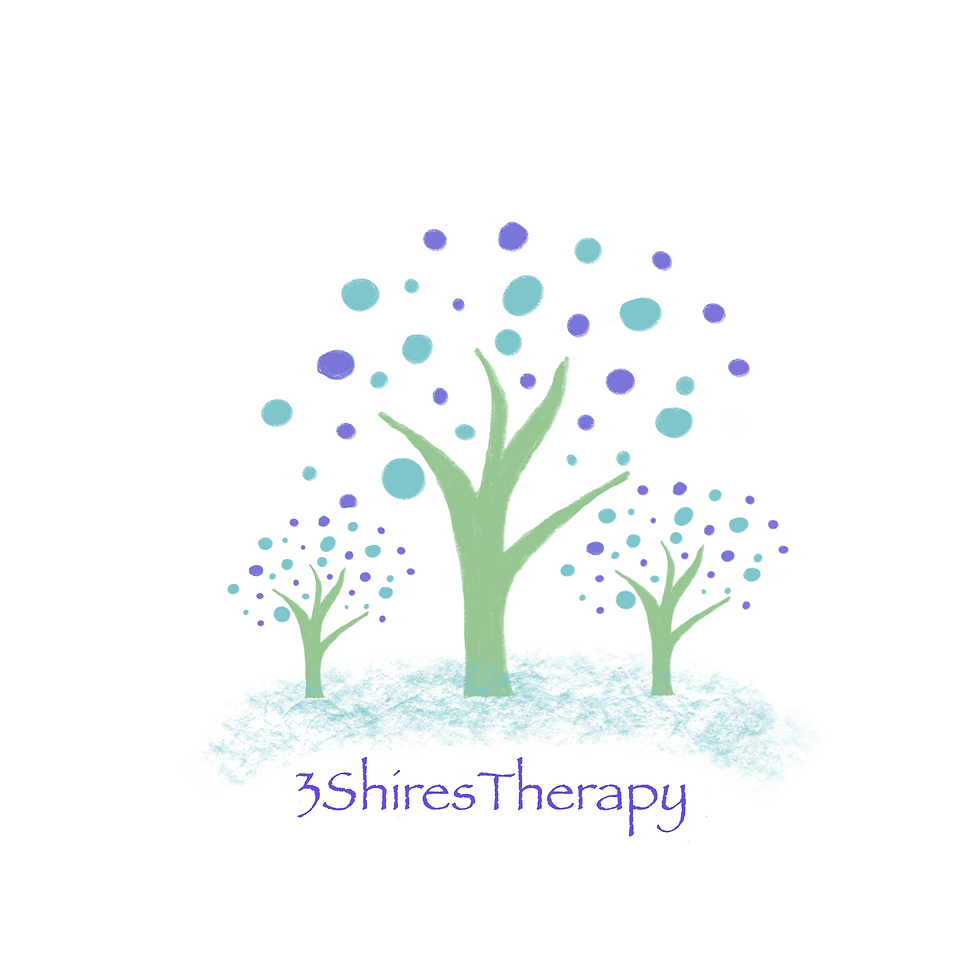Anxiety or depression do you know the difference?
- Kim Dudko

- Nov 21, 2019
- 3 min read
At 3 Shires Therapy, we always want to help our clients and ensure we are giving the best support possible.
To this end, I often find that many people confuse anxiety and depression as their symptoms, causes, and treatments can often overlap.
Certainly, it is my experience that if you ask someone to name two common mental health problems, often they will think of anxiety or depression.
People still struggle sometimes to understand the difference between the two conditions. This is because many people with anxiety often develop depression and vice versa. Figures tend to suggest that approximately 50% of people diagnosed with depression will also be diagnosed with some form of an anxiety disorder.
Many people with depression can experience what is known as “anxious distress” in addition to their low mood.

This means that people with “anxious distress” often feel tense, restless, and have trouble concentrating because they worry so much. They are often deeply afraid that something bad is going to happen or that they might lose control of themselves.
People who experience “anxious distress” with depression may be at a higher risk for suicide and may need more intensive treatment, so it is important to identify these symptoms along with the depression.
Above all, it’s important to remember to let a doctor or mental health professional evaluate you to see if your symptoms are either a depressive disorder or an anxiety disorder.
To give you a simple overview Symptoms of Major Depression include
depressed mood
lack of interest in enjoyable activities

increase or decrease in appetite
insomnia or hypersomnia
slowing of movement
lack of energy
feelings of guilt or worthlessness
trouble concentrating
suicidal thoughts or behaviours
As a rule, for diagnosis of a major depressive disorder, a person would probably have experienced five or more of these symptoms for at least two weeks.
People experiencing some of these symptoms might also be diagnosed with other disorders but that would be diagnosed by either a doctor or mental health professional.
Typical Symptoms of Generalized Anxiety Disorder would include
excessive worry
restlessness

being easily fatigued
trouble concentrating
irritability
sleep disturbance
muscle tension.
Again, if a client has experienced these symptoms most days for more than six months, and they cause distress in their daily life, then they may be suffering from a generalized anxiety disorder. Or perhaps types of anxiety disorders including separation anxiety, panic disorder, or phobias, among others.
If you look at the two lists of symptoms, you can see that there is some overlap. Sleep problems, trouble concentrating, and fatigue are all symptoms of both anxiety and depression. Irritability may also manifest in forms of anxiety or depression (in place of low mood).
There are, however, some distinguishing features that may help you identify if you or a member of your family or business colleague may need help.
As a rule, people with depression often move more slowly than usual, and their reactions can seem flattened or dulled. On the other hand, people with anxiety tend to be more keyed up, as they struggle to manage their racing thoughts.
Another distinguishing feature is the presence of fear about the future in people with anxiety. Depressed people who do not have anxiety are less likely to be fraught with worry about future events, as they are often resigned to believing that things will continue to be bad.
In other words, they may predict the future based on how they feel at the moment.
Talking to Your Doctor or Mental Health Specialist
If you or a family member have anxiety, depression, or both, chances are that your doctor will recommend medication, therapy (with a qualified counsellor), or a combination of the two.
Your counsellor or doctor, after the initial consultation, may ask you to keep track of your symptoms and keep a log of how you feel each day, as this can help in the diagnostic/recovery process.
It’s also important to speak up and ask your doctor or mental health specialist whether they think you have depression, anxiety, or both. This can help you understand the treatment focus and how to manage your symptoms.
Never hesitate to ask about your diagnosis, as you have a right to your personal health information.
The most important quality that anxiety and depression share is that they are both very treatable conditions.
Never hesitate to seek out a mental health specialist to help you stayed informed and on the right track towards a healthier mind and body.
If you need further information or you think you know someone or you are struggling with either condition and are unsure of what to do next just get in touch with me at www.3shirestherapy.com or call 07889 770563 either for an appointment or just advice.
I work in complete confidence and am bound by the BACP code of ethics.
You really do not need to struggle alone.
Kim Dudko—Lead Therapist at 3ShiresTherapy
Therapist, Counsellor, Coach and Corporate Consultant





Comments